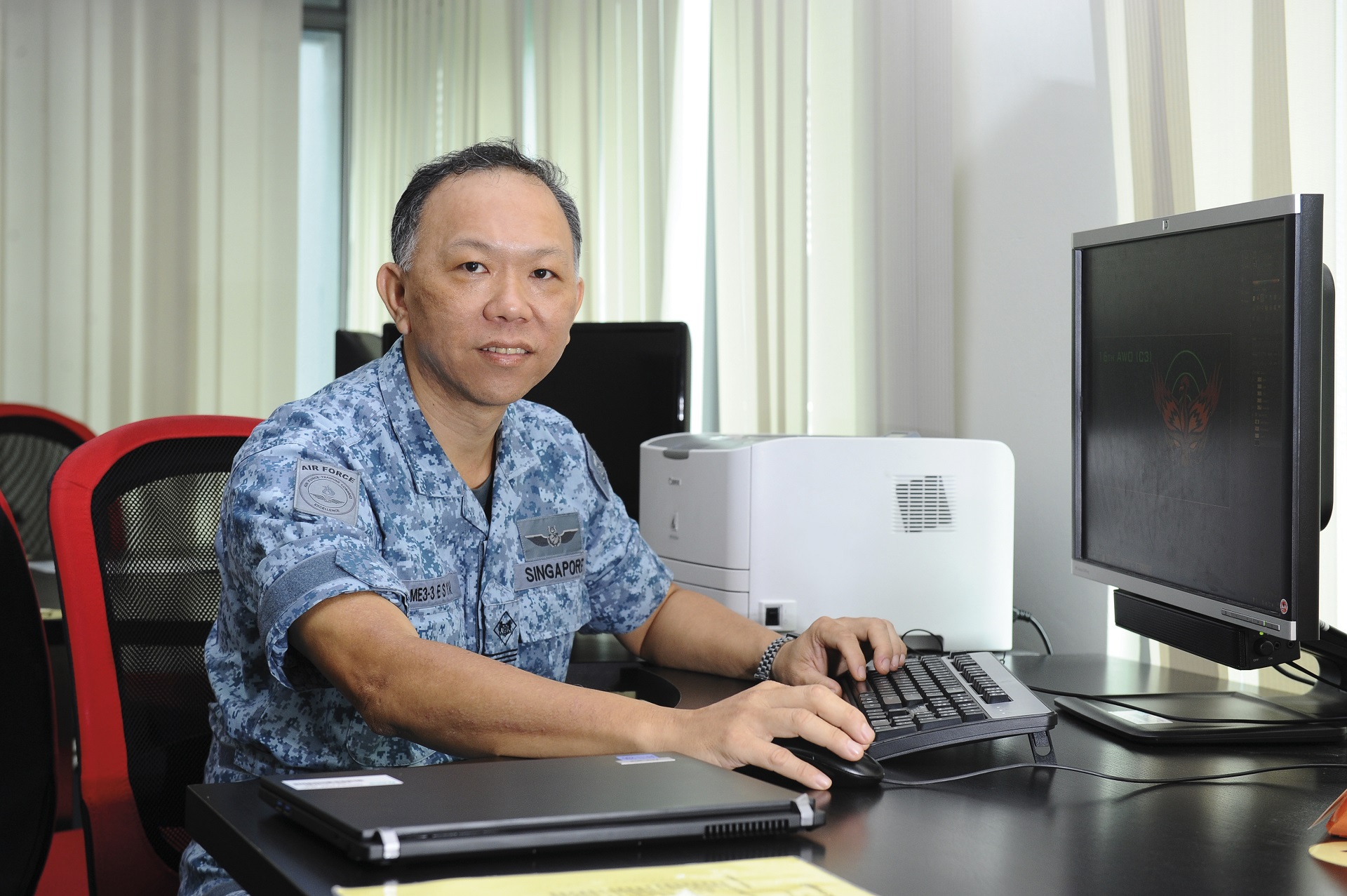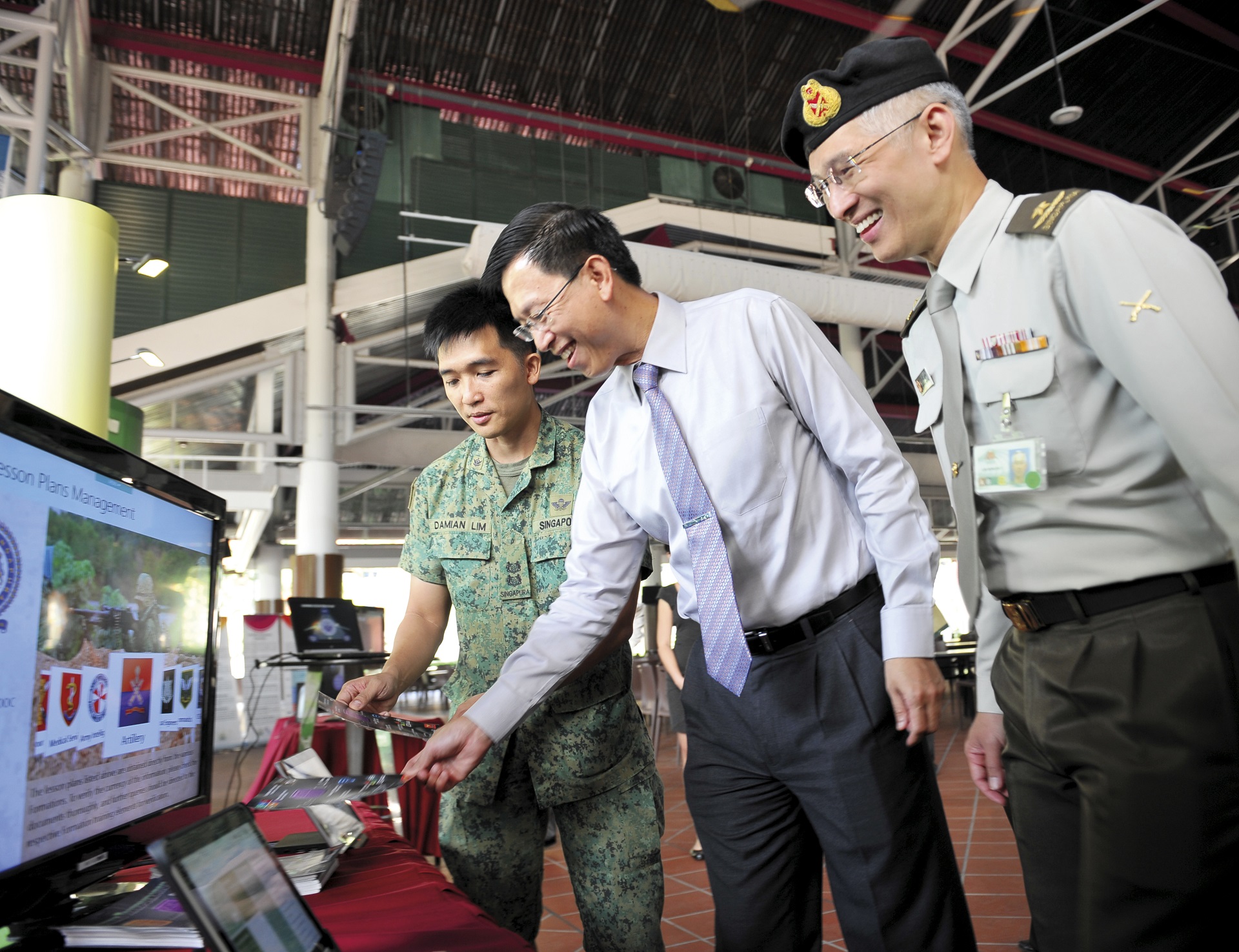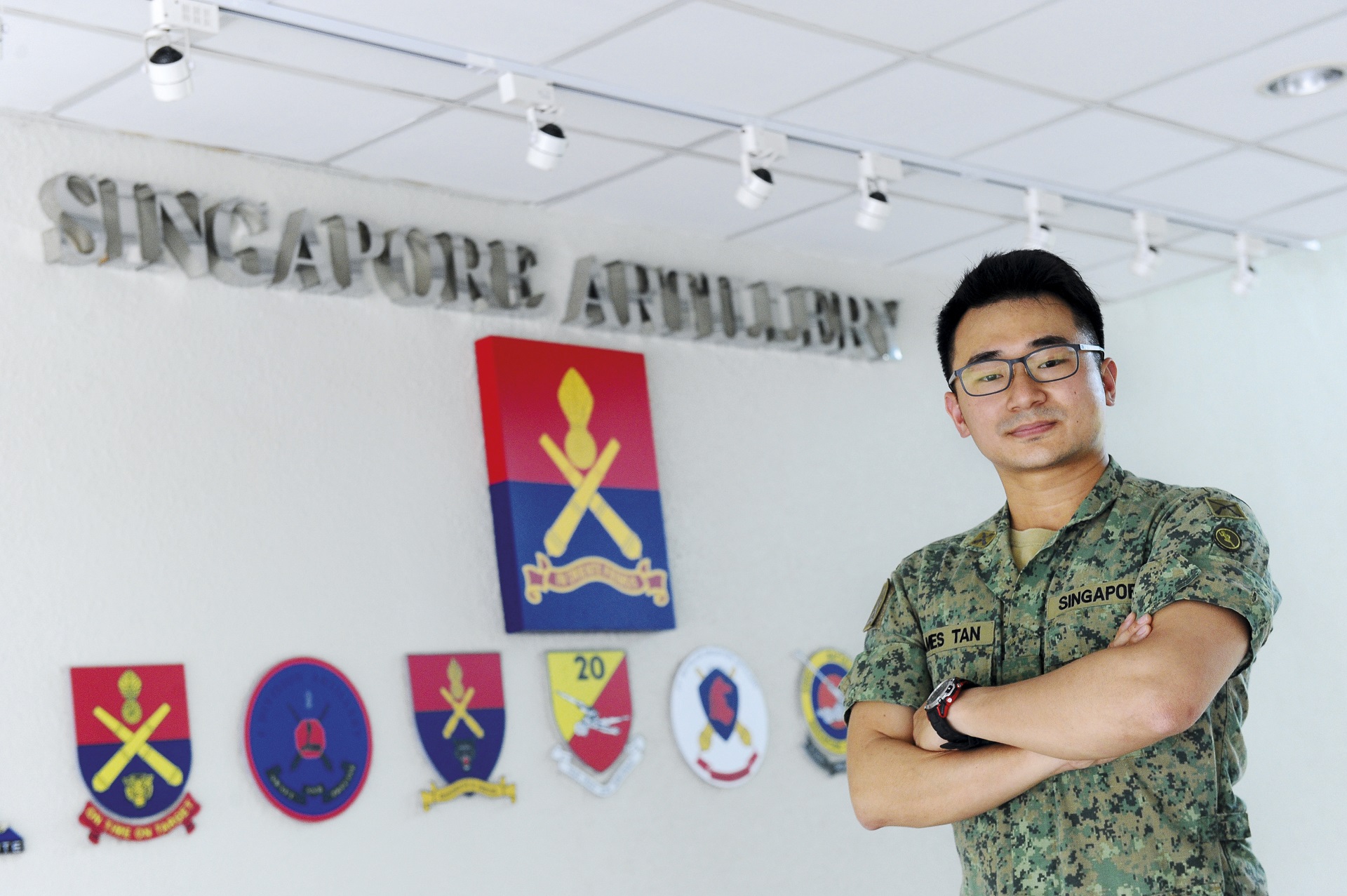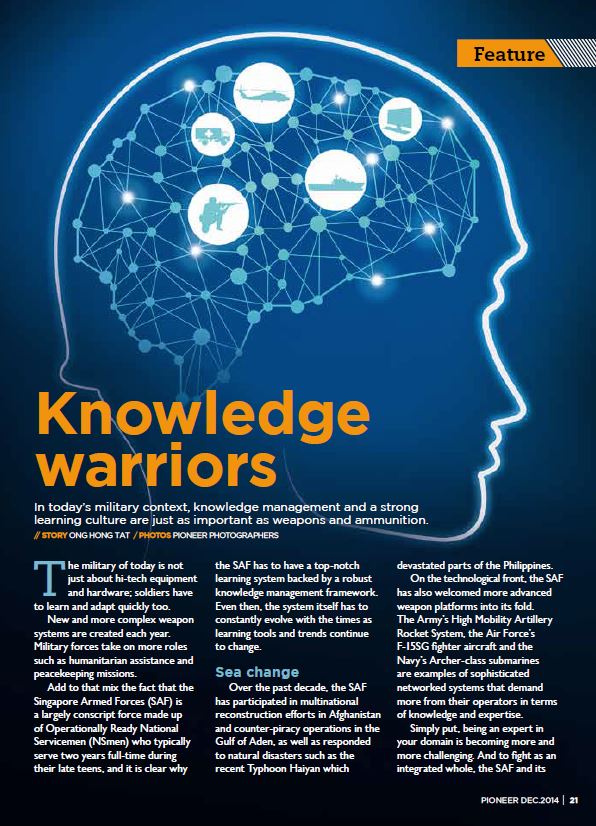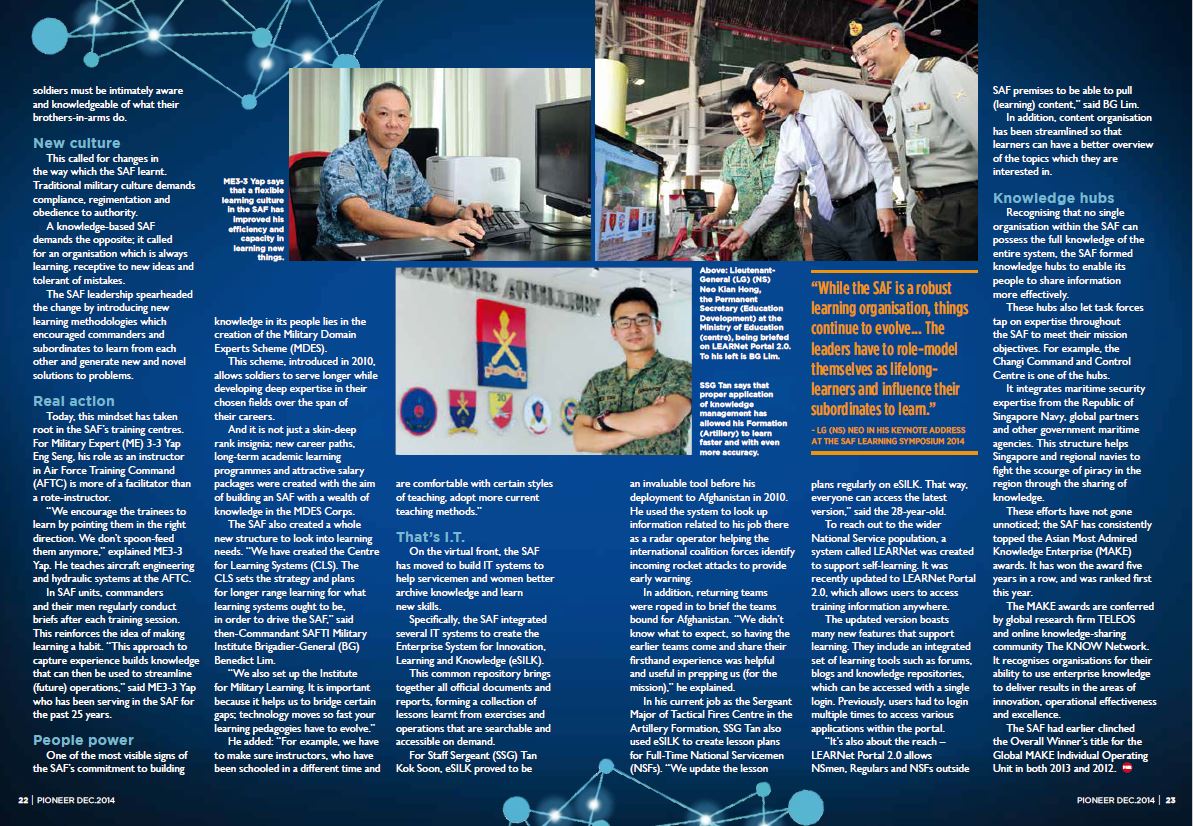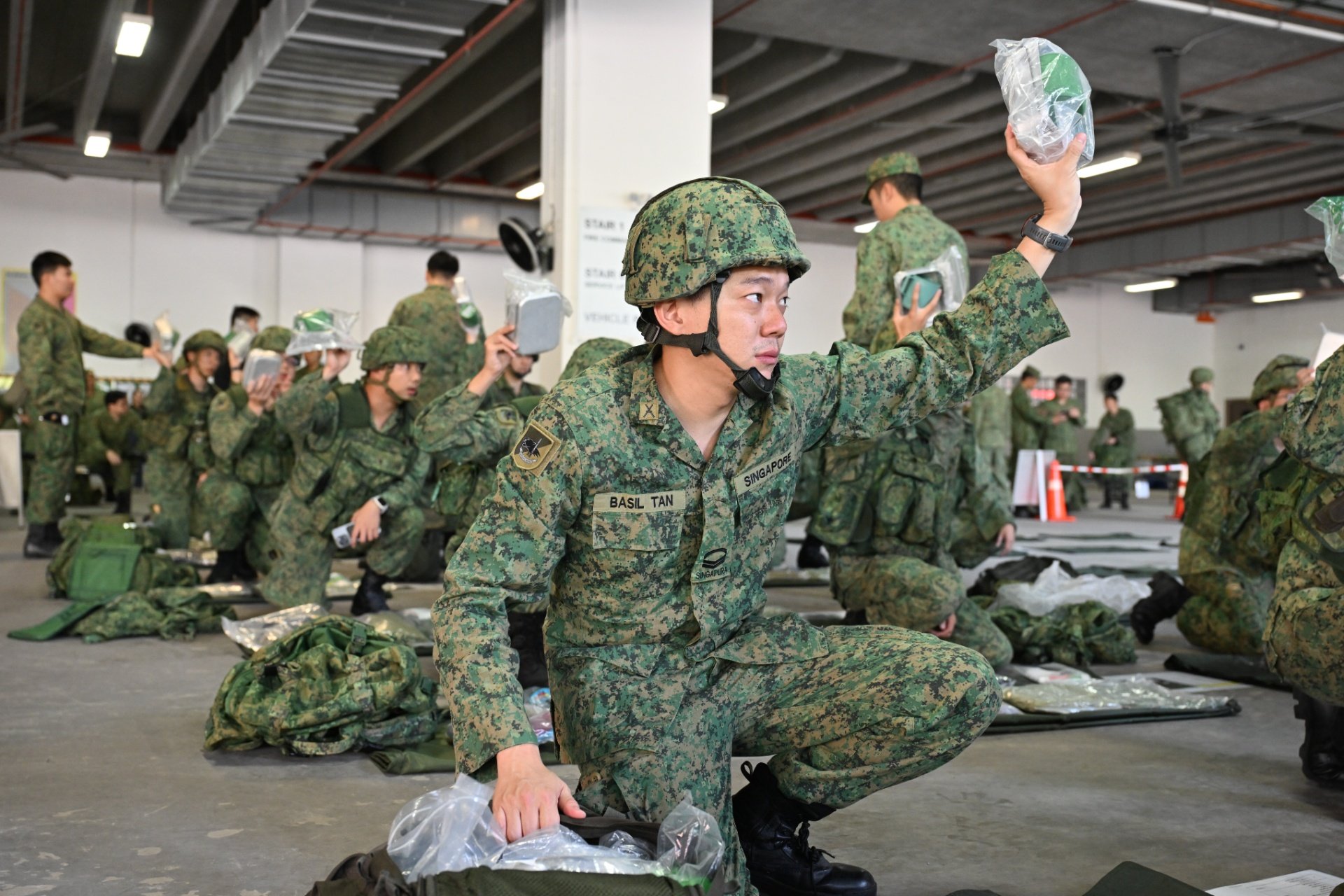OPS & TRAINING
KNOWLEDGE WARRIORS
04 Dec 2014

In today's military context, knowledge management and a strong learning culture are just as important as weapons and ammunition.
The military of today is not just about hi-tech equipment and hardware; soldiers have to learn and adapt quickly too.
New and more complex weapon systems are created each year. Military forces take on more roles such as humanitarian assistance and peacekeeping missions.
Add to that mix the fact that the Singapore Armed Forces (SAF) is a largely conscript force made up of Operationally Ready National Servicemen (NSmen) who typically serve two years full-time during their late teens, and it is clear why the SAF has to have a top-notch learning system backed by a robust knowledge management framework. Even then, the system itself has to constantly evolve with the times as learning tools and trends continue to change.
Sea change
Over the past decade, the SAF has participated in multinational reconstruction efforts in Afghanistan and counter-piracy operations in the Gulf of Aden, as well as responded to natural disasters such as the recent Typhoon Haiyan which devastated parts of the Philippines.
On the technological front, the SAF has also welcomed more advanced weapon platforms into its fold. The Army's High Mobility Artillery Rocket System, the Air Force's F-15SG fighter aircraft and the Navy's Archer-class submarines are examples of sophisticated networked systems that demand more from their operators in terms of knowledge and expertise.
Simply put, being an expert in your domain is becoming more and more challenging. And to fight as an integrated whole, the SAF and its soldiers must be intimately aware and knowledgeable of what their brothers-in-arms do.
New culture
This called for changes in the way which the SAF learnt. Traditional military culture demands compliance, regimentation and obedience to authority.
A knowledge-based SAF demands the opposite; it called for an organisation which is always learning, receptive to new ideas and tolerant of mistakes.
The SAF leadership spearheaded the change by introducing new learning methodologies which encouraged commanders and subordinates to learn from each other and generate new and novel solutions to problems.
Real action
Today, this mindset has taken root in the SAF's training centres. For Military Expert (ME) 3-3 Yap Eng Seng, his role as an instructor in Air Force Training Command (AFTC) is more of a facilitator than a rote-instructor.
"We encourage the trainees to learn by pointing them in the right direction. We don't spoon-feed them anymore," explained ME3-3 Yap. He teaches aircraft engineering and hydraulic systems at the AFTC.
In SAF units, commanders and their men regularly conduct briefs after each training session. This reinforces the idea of making learning a habit. "This approach to capture experience builds knowledge that can then be used to streamline (future) operations," said ME3-3 Yap who has been serving in the SAF for the past 25 years.
People power
One of the most visible signs of the SAF's commitment to building knowledge in its people lies in the creation of the Military Domain Experts Scheme (MDES).
This scheme, introduced in 2010, allows soldiers to serve longer while developing deep expertise in their chosen fields over the span of their careers.
And it is not just a skin-deep rank insignia; new career paths, long-term academic learning programmes and attractive salary packages were created with the aim of building an SAF with a wealth of knowledge in the MDES Corps.
The SAF also created a whole new structure to look into learning needs. "We have created the Centre for Learning Systems (CLS). The CLS sets the strategy and plans for longer range learning for what learning systems ought to be, in order to drive the SAF," said then-Commandant SAFTI Military Institute Brigadier-General (BG) Benedict Lim.
"We also set up the Institute for Military Learning. It is important because it helps us to bridge certain gaps; technology moves so fast your learning pedagogies have to evolve."
He added: "For example, we have to make sure instructors, who have been schooled in a different time and are comfortable with certain styles of teaching, adopt more current teaching methods."
That's I.T.
On the virtual front, the SAF has moved to build IT systems to help servicemen and women better archive knowledge and learn new skills.
Specifically, the SAF integrated several IT systems to create the Enterprise System for Innovation, Learning and Knowledge (eSILK).
This common repository brings together all official documents and reports, forming a collection of lessons learnt from exercises and operations that are searchable and accessible on demand.
For Staff Sergeant (SSG) Tan Kok Soon, eSILK proved to be an invaluable tool before his deployment to Afghanistan in 2010. He used the system to look up information related to his job there as a radar operator helping the international coalition forces identify incoming rocket attacks to provide early warning.
In addition, returning teams were roped in to brief the teams bound for Afghanistan. "We didn't know what to expect, so having the earlier teams come and share their firsthand experience was helpful and useful in prepping us (for the mission)," he explained.
In his current job as the Sergeant Major of Tactical Fires Centre in the Artillery Formation, SSG Tan also used eSILK to create lesson plans for Full-Time National Servicemen (NSFs). "We update the lesson plans regularly on eSILK. That way, everyone can access the latest version," said the 28-year-old.
To reach out to the wider National Service population, a system called LEARNet was created to support self-learning. It was recently updated to LEARNet Portal 2.0, which allows users to access training information anywhere.
The updated version boasts many new features that support learning. They include an integrated set of learning tools such as forums, blogs and knowledge repositories, which can be accessed with a single login. Previously, users had to login multiple times to access various applications within the portal.
"It's also about the reach - LEARNet Portal 2.0 allows NSmen, Regulars and NSFs outside SAF premises to be able to pull (learning) content," said BG Lim.
In addition, content organisation has been streamlined so that learners can have a better overview of the topics which they are interested in.
Knowledge hubs
Recognising that no single organisation within the SAF can possess the full knowledge of the entire system, the SAF formed knowledge hubs to enable its people to share information more effectively.
These hubs also let task forces tap on expertise throughout the SAF to meet their mission objectives. For example, the Changi Command and Control Centre is one of the hubs.
It integrates maritime security expertise from the Republic of Singapore Navy, global partners and other government maritime agencies. This structure helps Singapore and regional navies to fight the scourge of piracy in the region through the sharing of knowledge.
These efforts have not gone unnoticed; the SAF has consistently topped the Asian Most Admired Knowledge Enterprise (MAKE) awards. It has won the award five years in a row, and was ranked first this year.
The MAKE awards are conferred by global research firm TELEOS and online knowledge-sharing community The KNOW Network. It recognises organisations for their ability to use enterprise knowledge to deliver results in the areas of innovation, operational effectiveness and excellence.
The SAF had earlier clinched the Overall Winner's title for the Global MAKE Individual Operating Unit in both 2013 and 2012.
ALSO READ IN OPS & TRAINING
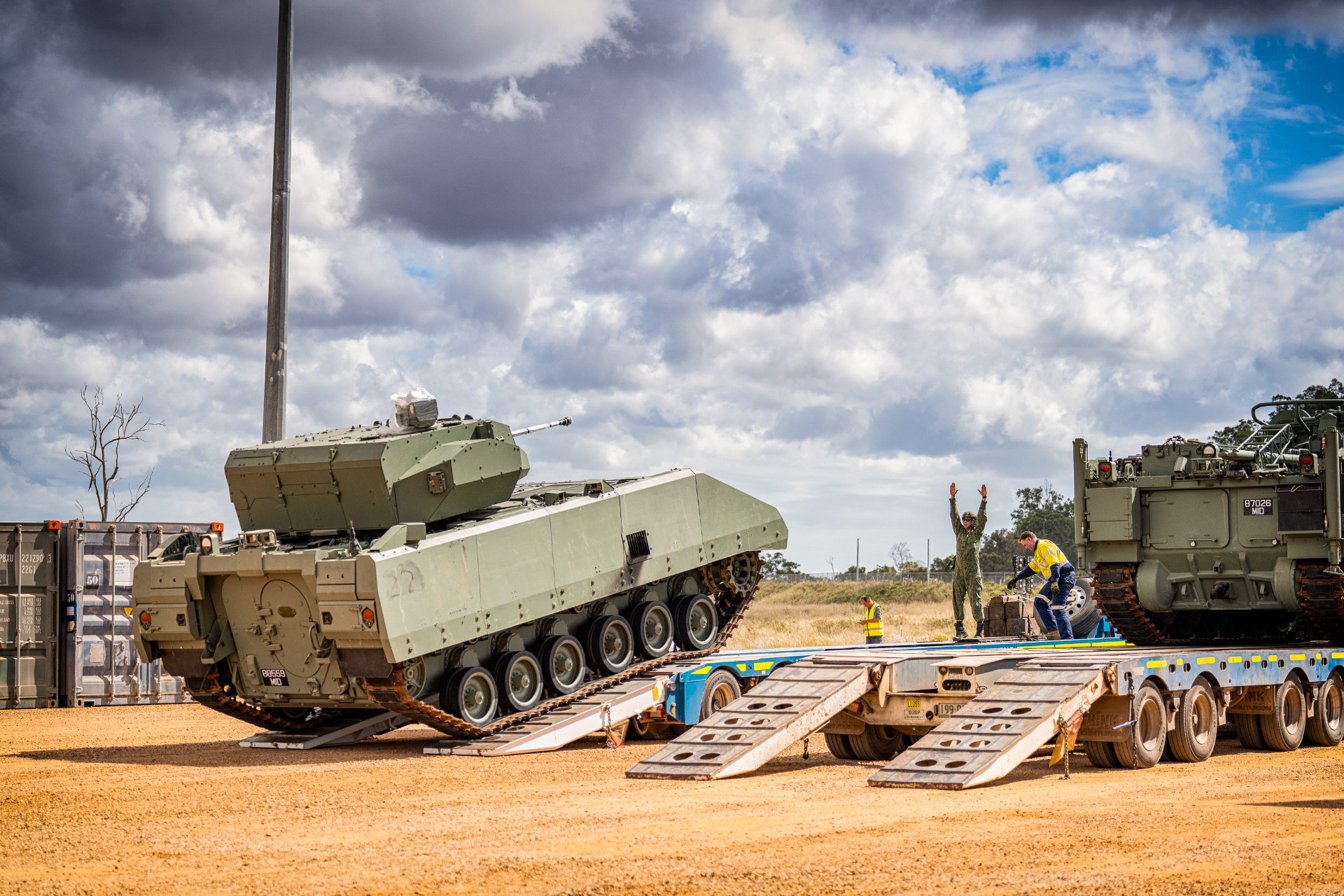
First in, last out at Ex Wallaby 2025
06 Nov 2025
Meet the teams who toil behind the scenes to enable the smooth conduct of the SAF’s biggest unilateral overseas exercise.
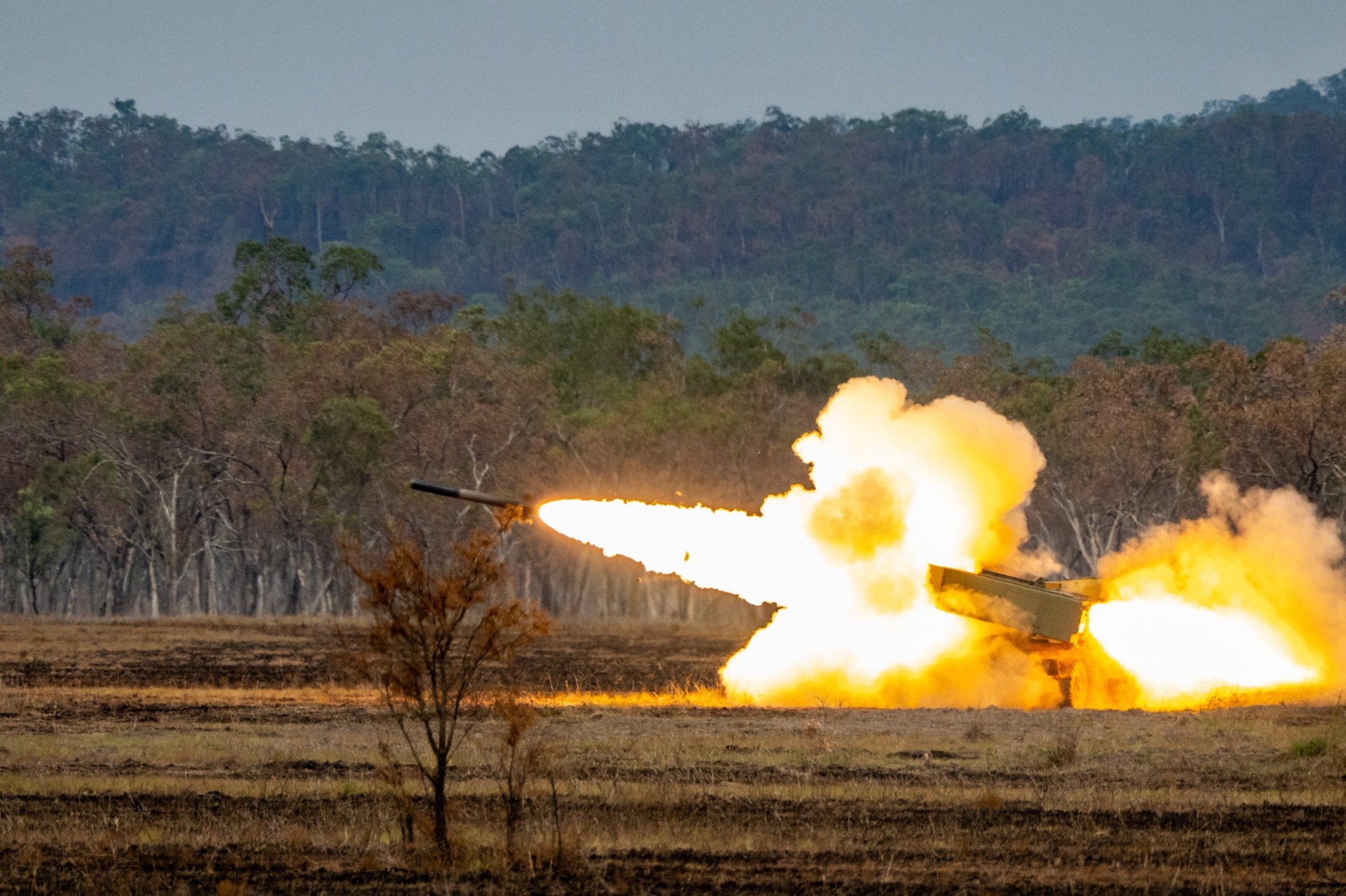
Exercise Wallaby 2025: To see better, shoot faster
31 Oct 2025
The SAF focuses on complex strike missions and multi-domain integration in Exercise Wallaby 2025, the 35th edition of its largest unilateral overseas exercise.
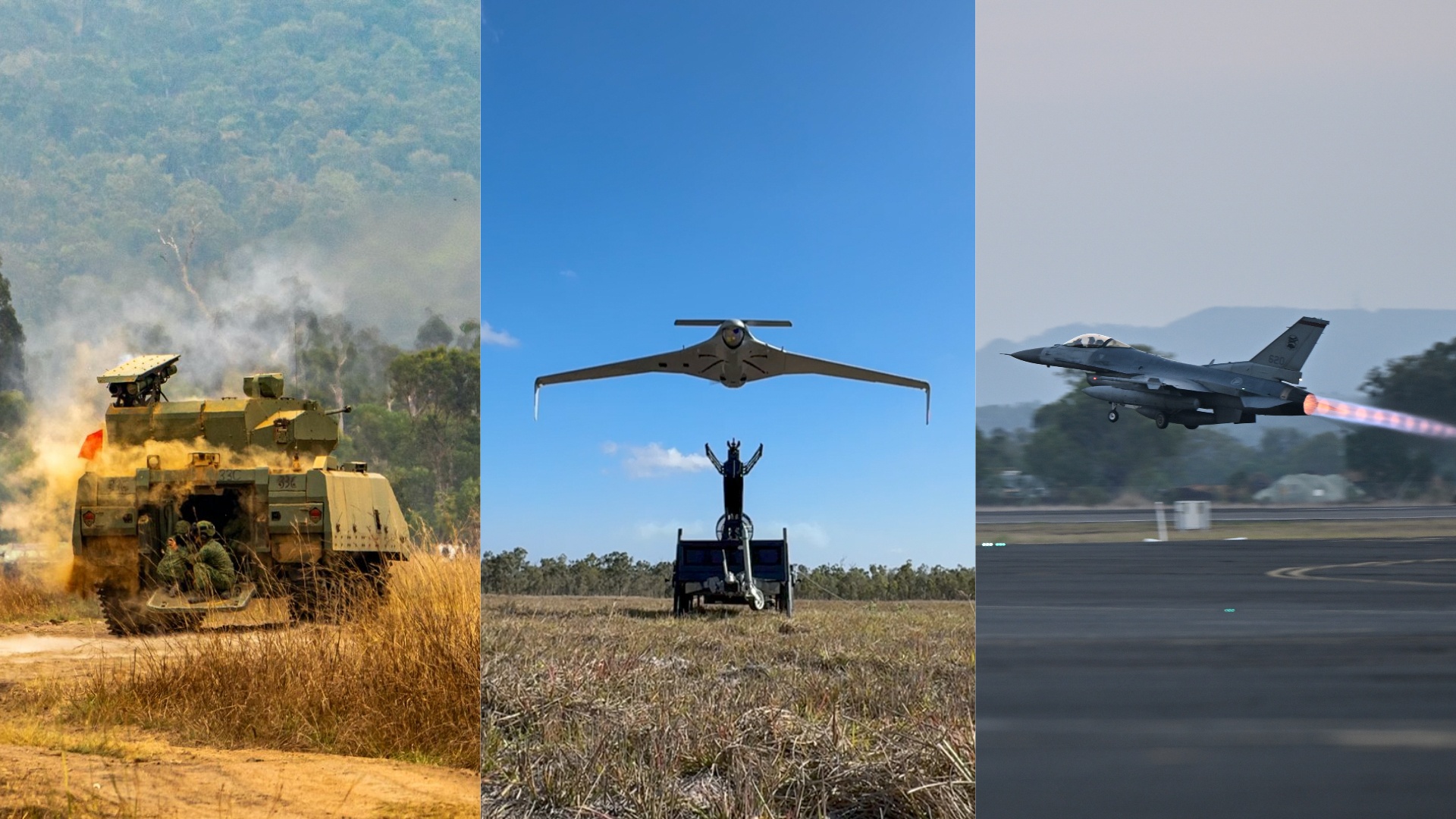
Ex Wallaby 25 – Greater Integration and Complexity
25 Oct 2025
The 35th edition of the SAF’s largest unilateral overseas exercise is an opportunity for expanded scale and deeper integration towards an effective, networked fighting force.


